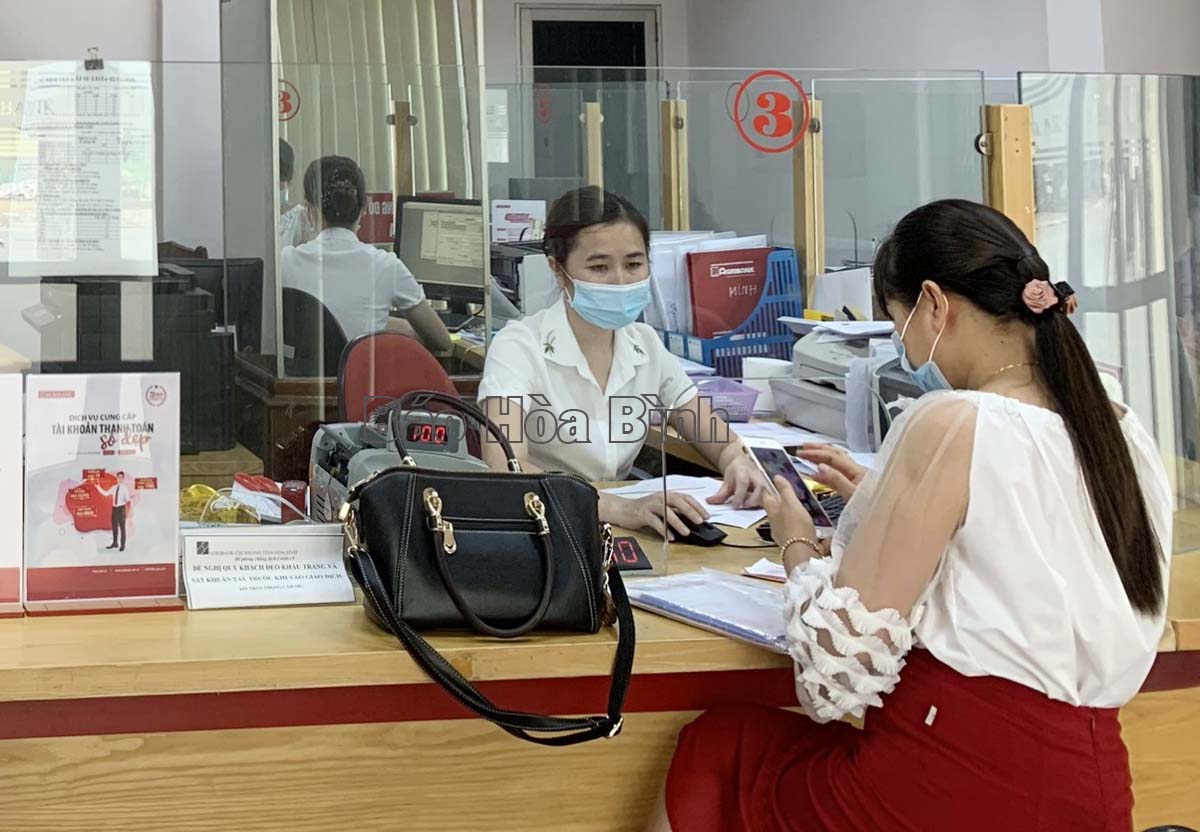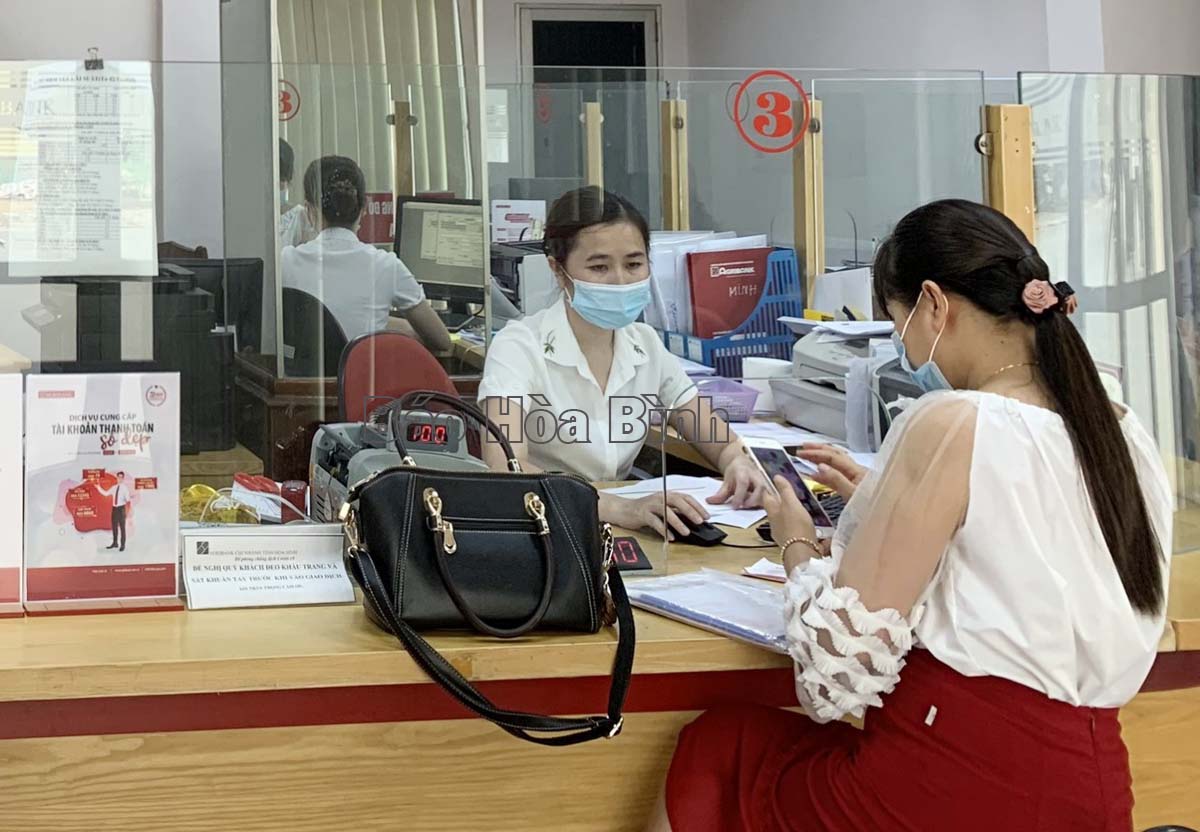
(HBO) – Since the year’s beginning, the banking sector in Hoa Binh province has taken various financial and credit-related measures to meet local development demand, thereby actively contributing to the realisation of the twin targets of containing COVID-19 and boosting socio-economic recovery and development.
The Hoa Binh branch of Agribank has applied COVID-19
prevention and control measures to its operations.
Deputy Director of the State Bank of Vietnam
(SBV)’s provincial branch Ngo Quang Loi said due to the COVID-19 impact, the
local economy has yet to gained good growth while enterprises have still
encountered certain difficulties since the year’s beginning.
Facing that fact, the provincial SBV branch has
been taking solutions to assist businesses to improve their competitiveness and
help improve the local investment and business climate.
In the time ahead, the branch will order the
continued implementation of COVID-19 prevention and control measures,
coordinate with relevant departments and sectors to have a good grasp of the
production and business situation, and keep a close watch on the pandemic’s
developments so as to effectively carry out appropriate measures for support
businesses and people, Loi said.
Besides, it will work to better the business
environment in the fields within its remit so as to help improve Hoa Binh
province’s competitiveness, he went on.
Meanwhile, credit organisations will press on
with measures removing difficulties that face the borrowers hit by the
pandemic, provide timely and sufficient capital for feasible projects and
business plans, and prioritise loans for agriculture, rural development, along
with the programmes benefiting from preferential credit as identified by the
Government.
Communications about cashless payment will also
be increased so as to encourage clients to use e-banking services.
The SBV branch in Hoa Binh will also urge
tightened control over credit for high-risk areas like real estate and securities
while enhancing risk management over loans for consumption and high-risk
transactions./.
According to data from the Hoa Binh Provincial Party Committee, the industrial production index for the first six months of 2025 is estimated to have increased by 20% compared to the same period last year. This marks the highest year-on-year growth rate for this period since 2020.
In the first six months of 2025, Hoa Binh province’s export turnover was estimated at 1.145 billion USD, marking an 18.11% increase compared to the same period in 2024. Import turnover was estimated at $ 804 million, a 17.15% increase, which helped the province maintain a positive trade balance.
The lives of the ethnic minority farmers in Tan Lac district have gradually improved thanks to the new directions in agricultural production. This is a testament to the collective strength fostered through the professional associations and groups implemented by various levels of the district’s Farmers’ Union.
With the motto the "product quality comes first,” after nearly one year of establishment and operation, Muong village’s Clean Food Agricultural and Commercial Cooperative, located in Cau Hamlet, Hung Son Commune (Kim Boi district), has launched reputable, high-quality agricultural products to the market that are well-received by consumers. The products such as Muong village’s pork sausage, salt-cured chicken, and salt-cured pork hocks have gradually carved out a place in the market and they are on the path to obtaining the OCOP certification.
In the past, the phrase "bumper harvest, rock-bottom prices" was a familiar refrain for Vietnamese farmers engaged in fragmented, small-scale agriculture. But today, a new spirit is emerging across rural areas of Hoa Binh province - one of collaboration, organisation, and collective economic models that provide a stable foundation for production.
Maintaining growing area codes and packing facility codes in accordance with regulations is a mandatory requirement for agricultural products to be eligible for export. Recently, the Department of Agriculture and Environment of Hoa Binh province has intensified technical supervision of designated farming areas and packing facilities to safeguard the "green passport" that enables its products to access international markets.



